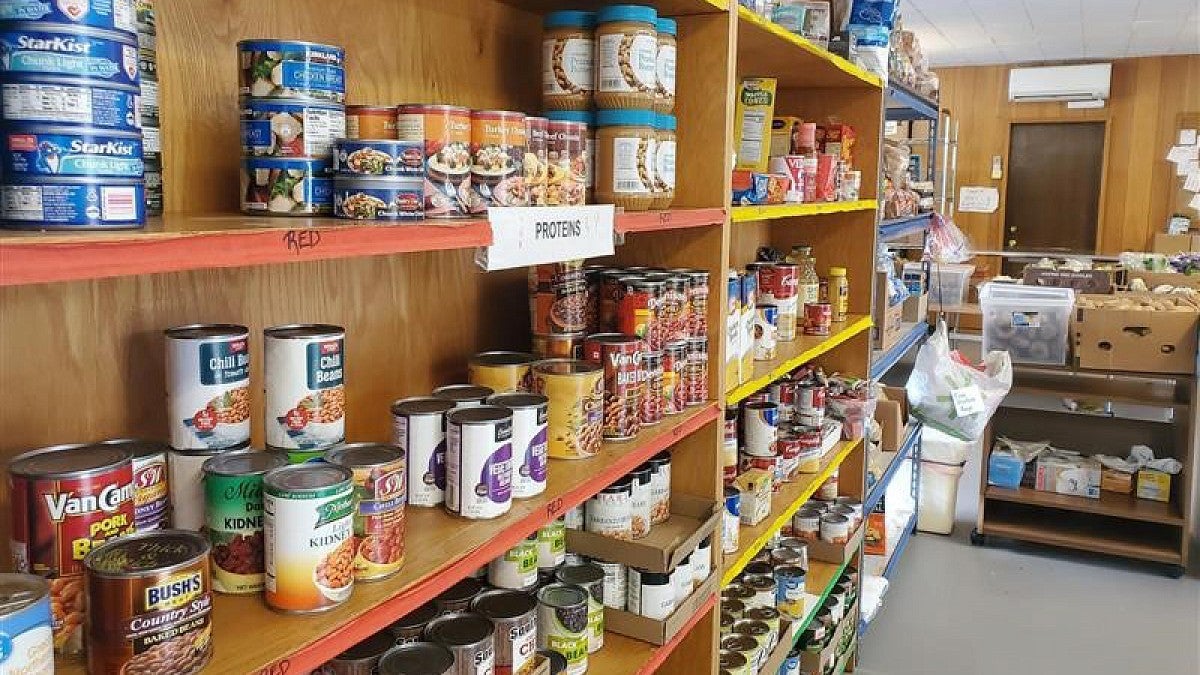The federal stimulus act passed in December made big changes to the grocery and food benefit program formerly known as food stamps that will allow more students to qualify.
The changes relate to students who are eligible for federal work-study awards and those who reported an expected family contribution of zero on their federal financial aid form, known as FAFSFA. If a student meets either of the conditions and also meets the income requirement, as most students do, they are now likely eligible for the benefit.
That means that thousands of students at the UO are now eligible to receive monthly benefits to help them buy fresh, nutritious food through the federal program, now known as the Supplemental Nutrition Assistance Program or SNAP. Those students were recently notified via email by the Office of Student Financial Aid and Scholarships.
What’s more, because of the pandemic, the maximum amount awarded to participants has also increased, up to $234 a month for qualifying individuals, and more if there are additional members of the household.
“SNAP, also known as Oregon Trail, has always been one of the most reliable and impactful methods of combatting food insecurity,” said Taylor McHolm, one of the co-directors of the UO Food Security Task Force with Marcus Langford. “It allows people the freedom of choice, and it can be used directly at grocery stores where people would already be shopping. It works just like money, because it basically is money.”
Langford said Oregon recently focused on college students’ eligibility, part of a wider reckoning with high levels of food insecurity on college campuses. At the UO, 36 percent of students are considered food insecure, based on data obtained through the HopeLab #RealCollege project run by Temple University.
The rates are much higher for students of color and members of the LGBTQIA+ communities. The Food Security Task Force is actively gauging the effect of the pandemic.
“Previously, a student needed to actually be awarded a work-study award,” McHolm said. “But the new eligibility guidelines mean that a student merely needs to be eligible for one, regardless of whether or not they received that award. Between that and the (expected family contribution) of zero dollars, we think there’s a few thousand students who are newly eligible for support.”
Additional factors may affect eligibility, and the Oregon Department of Human Services ultimately determines eligibility and the benefit amount after meeting with the applicant. However, students have a number of resources they can use to get help applying for SNAP benefits, including:
- Watching videos about eligibility and applying.
- Directly applying online through the Oregon One Eligibility website.
- Request help by filling out an online form.
- Chatting online with a peer advisor Monday through Friday between 10 a.m. and 2 p.m.
- Visiting the Duck Nest virtually or in person, the Student Food Pantry on Wednesday and Thursday from 4 p.m. to 6 p.m., or Produce Drops at the pantry on Tuesdays from 3 to 5 p.m. to talk to someone in person.
SNAP support is a part of a broad strategy to combat student food insecurity at UO called Feed the Flock. The Food Security Task Force meets regularly to discuss the various programs of Feed the Flock and ensure that they’re targeted and useful.
In conjunction with the Governor’s State Employees Food Drive last month, the task force recently completed a guide for faculty and staff to help students access resources. It also offers some guidance on how to have conversations with students.
“Regardless of the kind of interaction you have with students, even if you have no interaction with students, there are things you can do to help get food into students’ hands,” Langford said.
He suggests that professors link resources on their syllabus or use the blurb created by education studies professor Sarah Stapleton, a member of the task force. Employers can talk to their students about the new eligibility and its ties to work-study. Staff members who don’t often have regular contact with students can share the resources with their colleagues who do.
Individuals or departments that would like to receive training on SNAP applications to better assist students can email foodsecurity@uoregon.edu. For more information, check out the UO Basic Needs Resource Guide and the Feed the Flock website.


